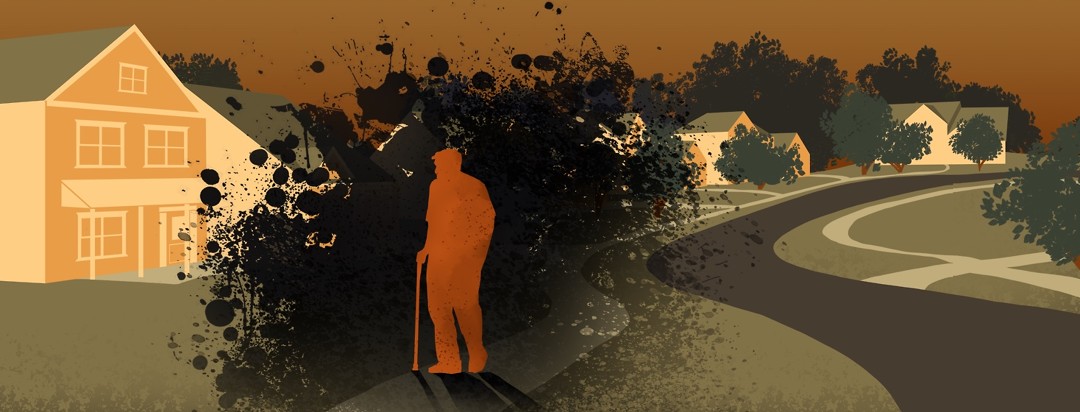Where Did Dad Wander To?
Dad has always lived in the house I grew up in. To be more specific, Dad grew up in the house I grew up in. His parents owned the house since he was very young. Dad really knew the neighbourhood well, he had been there his whole life. I always thought that was a neat piece of history. I never thought it would end up being something very important for Dad’s safety beyond the fact it was nice to know.
Knowing your loved one could wander is difficult. It’s even more terrifying knowing they could get lost. When Mom told me Dad was in the stage of Alzheimer’s where he was wandering, I was pretty scared. My mind conjured up all kinds of horror stories. Mom did not seem as freaked out as I was but that was in part because she could see where he was going.
Wandering when agitated
Here’s what was happening. To start with, Dad would usually leave the house when he was in an agitated state. Because of the disease, the times of agitation would come and go. When this happened, Mom would not argue or try to persuade him to stay. She found it easier to just let him go.
Was Dad safe when he wandered?
What Mom would do was go out on the front porch when Dad was a house or two down from theirs and watch where he was going. He always went to the end of the block, turned around and came back. After this same thing happened a number of times, Mom felt confident that Dad was safe enough doing this. The larger family didn't feel quite so confident. I should state here that all of us, the family, live hours out of town away from Mom and Dad. So for all of us, we found it hard to believe Dad was safe. But at that time, he was.
As the disease progressed, Dad started to wander farther. Again, Mom knew Dad was safe based on how long it took him to return. My brothers and our families were at Mom and Dad’s for a celebration one weekend. Dad became agitated by all the activity with all of us visiting. It was more than he could cope with and he needed to escape. Dad was leaving. My brothers tried to convince Dad to stay, unsuccessfully. Dad put on his shoes and coat, his Detroit Lions ball cap, and left. My brothers decided to follow him. Dad went beyond ‘up the street to the corner’. They did not interfere. They just followed from a distance. Dad went up the block, around the corner, around another and two blocks down, doing a complete square to return to the house. They were amazed. I was shocked. So was Mom. So, for now, we were ok with knowing he was safe enough, given the circumstances.
As time moved forward and the Alzheimer’s progressed, Dad’s wandering changed. He was ending up several blocks away, lost. He would go up on this one family’s porch thinking he was home and looking for Jean, my mom. Those kind people just brought Dad home each time with no judgment.
When Dad was no longer safe at home
After a time, Dad was no longer safe at home. At one point in front of the house, he flagged down a passing cab to take him home. My brother was there at the time and prevented this from happening. Thankfully that was the only time that happened.
I often wonder though if the reason his wandering was ‘ok’ for such a long time was because he lived his whole life in that neighbourhood. It would make sense. I’m sure the house that Dad kept ending up at was probably where one of his close childhood friends had lived. You’ll probably never convince me that there are threads of the person's past that are not still present with Alzheimer's no matter what stage of the disease they have progressed to. I’ve just had too many examples of this happening. Dad’s wandering sure supported that.
Dad was lucky. His wandering, for the most part, was in the neighborhood. I’m thankful he never really got lost.
What tools or tech have you employed to keep a loved one safe from wandering? Share with the community in the forums.

Join the conversation